Iran Nuclear Talks Are Running Into Red Lines
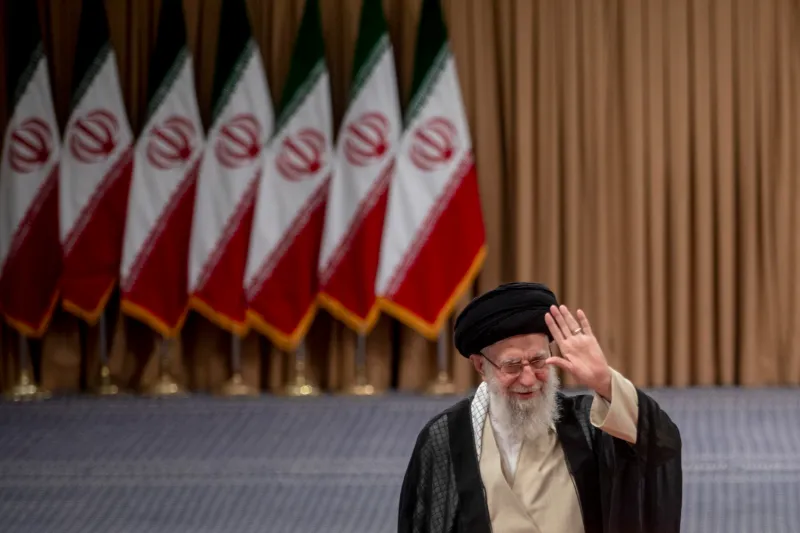
Iran Nuclear Talks Are Running Into Red Lines
Once-hopeful negotiations are falling prey to a bitter fight over uranium enrichment.
Iranian Supreme Leader Ayatollah Ali Khamenei waves after casting his vote for the presidential runoff election on July 5, 2024 in Tehran, Iran. Majid Saeedi/Getty Images
Although U.S. President Donald Trump suggested last week that a nuclear deal with Iran was “close,” that doesn’t actually seem to be the case as both sides are digging in on their respective red lines and appearing to rule out the early possibility of a negotiated solution to the future of Iran’s nuclear program.
On May 20, Iran’s Supreme Leader Ayatollah Ali Khamenei called U.S. demands for Iran to cease even low levels of uranium enrichment “excessive and outrageous” and “nonsense,” and he cast further doubt on the expected next round of indirect talks between the two sides yielding any result. Other Iranian leaders have also reiterated that talks will fail if the United States maintains its demand that Iran cease domestic uranium enrichment, a right Tehran believes it has under the Nuclear Non-Proliferation Treaty (NPT). Iran said it’s continuing to study the latest proposal made by the United States during the most recent round of talks.
Although U.S. President Donald Trump suggested last week that a nuclear deal with Iran was “close,” that doesn’t actually seem to be the case as both sides are digging in on their respective red lines and appearing to rule out the early possibility of a negotiated solution to the future of Iran’s nuclear program.
On May 20, Iran’s Supreme Leader Ayatollah Ali Khamenei called U.S. demands for Iran to cease even low levels of uranium enrichment “excessive and outrageous” and “nonsense,” and he cast further doubt on the expected next round of indirect talks between the two sides yielding any result. Other Iranian leaders have also reiterated that talks will fail if the United States maintains its demand that Iran cease domestic uranium enrichment, a right Tehran believes it has under the Nuclear Non-Proliferation Treaty (NPT). Iran said it’s continuing to study the latest proposal made by the United States during the most recent round of talks.
But such demands, which reflect the view that uranium enrichment facilities are the key to Iran’s ability to turn innocuous materials into a nuclear weapon, have become the bedrock of the Trump administration’s position. U.S. special envoy Steve Witkoff said that the United States would not allow Iran to have even “1 percent” of enrichment capacity. Secretary of State and acting National Security Advisor Marco Rubio told the Senate Foreign Relations Committee on May 20 that the administration is opposed to any domestic enrichment capability in Iran because it is relatively easy to go from churning out low-grade uranium to weapons-grade uranium.
“It is our view that they want enrichment as a deterrent,” Rubio said.
Trump has previously warned Iran that if it does not make a deal, it could face a military strike with “violence like people haven’t seen before.”
“We are nowhere close to a deal right now,” said Ali Vaez, the Iran Project director at the International Crisis Group. “From what I understand, the U.S. proposal is zero enrichment, which has a 20-year unblemished track record of failure.”
The four rounds of talks so far, with the possibility of a fifth round this weekend, seemed to offer the best chance in years to diplomatically resolve the impasse between Iran and the United States over Tehran’s growing nuclear capabilities.
Iran’s economy has been battered by U.S. and Western sanctions, as well as continued restrictions on its ability to export oil, including intensified U.S. efforts to crack down on illicit tankers that ship Iranian crude. Iran’s regional proxies, including militant groups in Lebanon and the Gaza Strip, have been decimated, and its hold over Syria has weakened. Iran’s own defenses, such as advanced Russian-made air defense systems, were annihilated last fall by Israeli strikes, which left Iran more vulnerable to the continued U.S. military presence around the Persian Gulf than it has been for years—making Trump’s threats of a military stick more convincing than past threats to halt Iran’s nuclear ambitions by force.
That, coupled with apparently popular Iranian support for diplomatic engagement with Washington, has given Iranian leaders the political space to engage again in talks—but not at any price and especially not renouncing what the country sees as its right to enrich uranium at least to the low levels used in civilian nuclear reactors.
But the Trump administration has its own domestic politics to consider in talks with Iran, particularly when it comes to ceding any ground on the fight over enrichment. On May 14, more than 200 lawmakers in both chambers of Congress sent Trump a letter urging him against any deal that would allow Iran to retain uranium enrichment capability, which the lawmakers saw as the fatal flaw of the Joint Comprehensive Plan of Action (JCPOA) that the Obama administration inked with Tehran in 2015.
That letter, and the congressional pressure, “allows Trump to benefit from a ‘bad cop’ in the Iranian nuclear talks,” said Behnam Ben Taleblu, senior director of the Iran program at the Foundation for Defense of Democracies. He said that an entrenched position could ultimately make it possible to wrest concessions from Iran, because without them, Congress would be unlikely to ratify any future U.S.-Iran agreement as a treaty. Doing so is important for Iran, as the JCPOA’s lack of ratification was a perennial source of insecurity for Tehran.
Trump’s recent comments that a deal was close came in the wake of Iranian statements that Tehran would be willing to forswear nuclear weapons and end high-grade enrichment of uranium in exchange for sanctions relief, which was also a primary driver of Iran’s acquiescence to the JCPOA.
There remain all sorts of questions as to whether sanctions relief would ever actually materialize in the event a deal were reached. U.S. primary and secondary sanctions, such as those restricting Iran’s energy and banking sectors, are notoriously sticky. As Iran learned between 2015 and 2018, it has proven difficult to entice U.S. banks and businesses, and even many European ones, to go back to doing business as usual in places that have long been blacklisted and might again be soon.
But a deal that allowed Iran to enrich small quantities of uranium to the low levels needed for civilian reactors while getting rid of its highly enriched uranium and opening the country to regular inspections by international nuclear authorities would look a lot like the Obama-era deal that Trump and other Republicans have spent a decade excoriating; Trump withdrew the United States from the JCPOA in 2018.
“If all that comes out is a JCPOA 2.0, the Iranians would say, ‘We forced Trump to go back into the same deal,’” Ben Taleblu said. “Trump can’t afford to have that.”
Part of the reason for the administration’s maximalist push against enrichment is Iran’s weakness right now, which fuels the belief that Tehran will accept onerous conditions to gain some relief from crushing sanctions. But that weakness in itself makes it harder for Iran to surrender all vestiges of its nuclear program, a prestige program that has swallowed years of attention and vast amounts of government investment, Vaez said.
“In the Witkoff team, there is a very strong view that it is a mistake to offer a JCPOA-lite because [the Iranians] are weaker than ever,” Vaez said. “But if you believe they lost all their regional deterrence, why would they forgo their last pillar of defense? The more you argue Iran is in a position of weakness, the more you are arguing against the deal.”
In any event, despite Trump’s informal announcement of a 60-day deadline for talks when the two countries resumed negotiations in April, the real ticking clock is in Europe. This October, the three European parties to the JCPOA—the United Kingdom, France, and Germany—will lose the ability to “snap back” United Nations sanctions on Iran that were lifted as part of that deal.
European countries, alarmed by Iran’s behavior in the region (especially the attacks on shipping in the Red Sea), continued advancement of its nuclear program, and support for Russia’s invasion of Ukraine, have become increasingly hawkish toward Iran over the past decade.
“Since Trump left office, Europe has moved to the right of the United States on Iran,” Ben Taleblu said. That newfound determination could come to a head this summer, despite one inconclusive meeting between Iran and the so-called E3 last week, as Europe mulls restoring sanctions pressure as a way to force Iran to renounce its nuclear ambitions.
“The most important reason that 2025 is the year of decision is because of ‘snapback,’” Ben Taleblu said.
Iran has warned that such a step would drive it to leave the NPT, which would have potentially disturbing implications for international efforts to monitor Iran’s nuclear program and its compliance with proliferation norms.
Snapback “is the real deadline. In the absence of a deal, I believe the Europeans will resort to snapback,” Vaez said. “But that is suicide. That would drive Iran out of the NPT, and if they pull out of the NPT, that would be the nuclear genie out of the bottle.”
This post is part of FP’s ongoing coverage of the Trump administration. Follow along here.
Keith Johnson is a reporter at Foreign Policy covering geoeconomics and energy. X: @KFJ_FP
More from Foreign Policy
-

This handout picture provided by the office of Iranian Supreme Leader Ayatollah Ali Khamenei shows him praying inside the tomb of the late Supreme Leader Ayatollah Ruhollah Khomeini in Tehran on Jan. 30. Why Khamenei Is Betting on Trump
The calculus behind Iran’s stunning reversal on a new nuclear deal.
-

Musk wears a red had that reads “GULF OF AMERICA.” Elon Musk Was Donald Trump’s Useful Idiot
It’s looking increasingly likely that the world’s richest man got played.
-

With Jared Kushner to his left, Donald Trump listens to the rabbi Shmuel Rabinovitch during a visit to the Western Wall in Jerusalem’s Old City on May 22, 2017. Trump Isn’t Following the Script on Israel
In dealing with Netanyahu, the U.S. president appears to actually be living up to his campaign slogan to put America first.
-

Indian Air Force personnel stand in front of a Rafale fighter jet during a military aviation exhibition at the Yelahanka Air Force Station in Bengaluru. A Tale of Four Fighter Jets
The aircraft India and Pakistan use to strike each other tell a story of key geopolitical shifts.


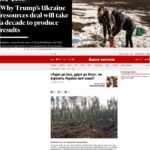

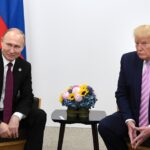




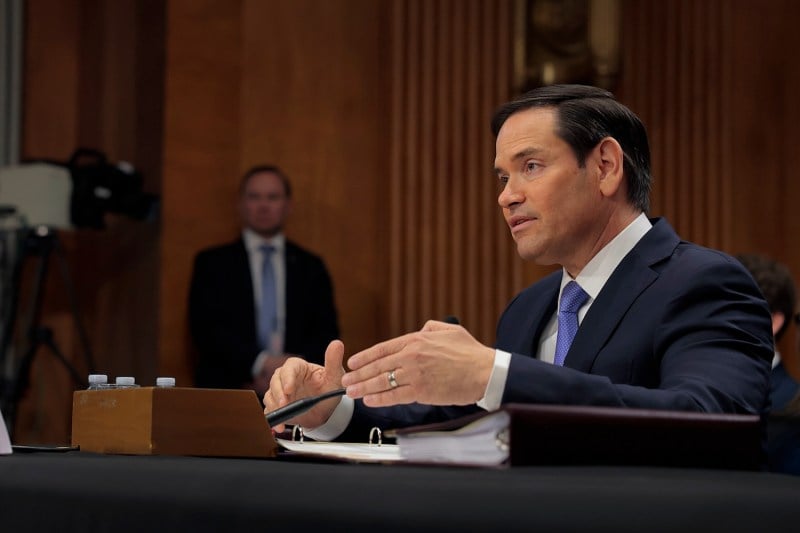
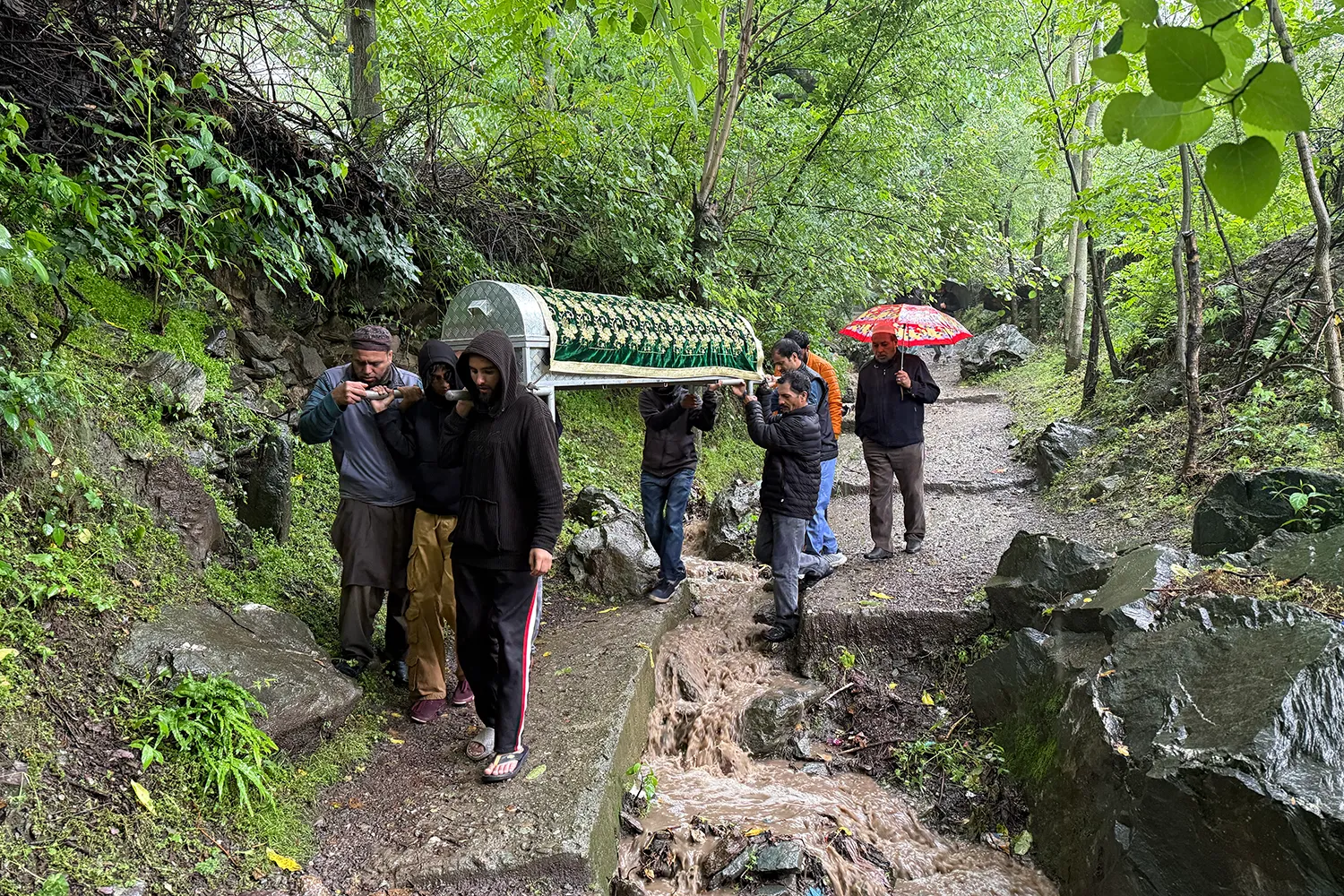
Join the Conversation
Commenting on this and other recent articles is just one benefit of a Foreign Policy subscription.
Already a subscriber?
.
Subscribe
Subscribe
View Comments
Join the Conversation
Join the conversation on this and other recent Foreign Policy articles when you subscribe now.
Subscribe
Subscribe
Not your account?
View Comments
Join the Conversation
Please follow our comment guidelines, stay on topic, and be civil, courteous, and respectful of others’ beliefs.
Change your username |
Log out
Change your username:
CANCEL
Confirm your username to get started.
The default username below has been generated using the first name and last initial on your FP subscriber account. Usernames may be updated at any time and must not contain inappropriate or offensive language.